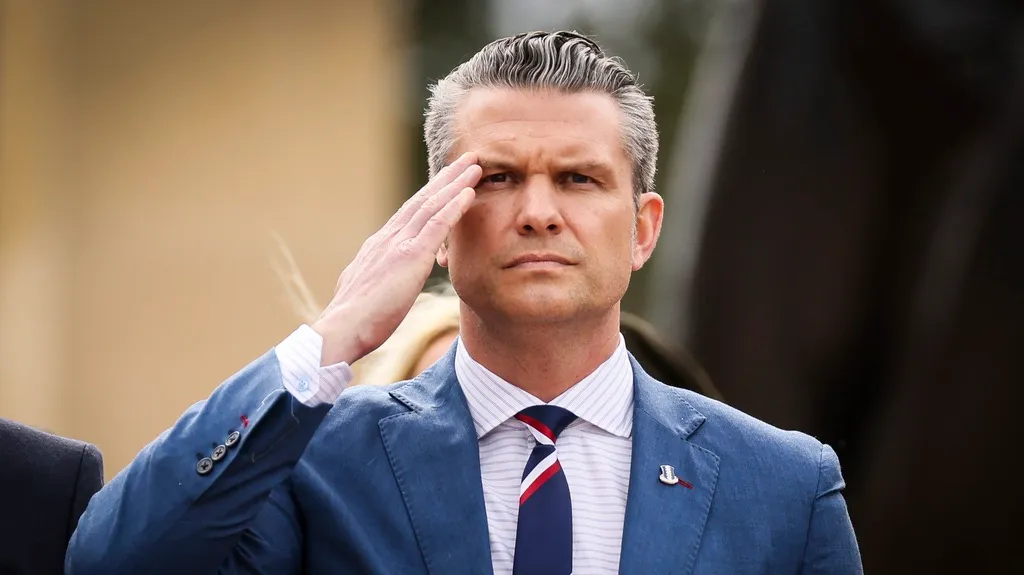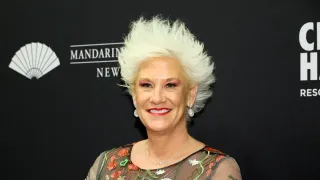March 13, 2015
Utah Gov. Signs Church-Backed Anti-Discrimination Bill
Bobby McGuire READ TIME: 3 MIN.
SALT LAKE CITY -- Gov. Gary Herbert on Thursday signed into law an anti-discrimination measure that earned the support of the Mormon church amid a crowd that brought smiling clergy members together with LGBT activists draped in rainbow flags.
Hundreds of people packed the rotunda and the staircase behind the governor to witness the unusual public signing ceremony Thursday night. The crowd roared when Herbert proudly held up a freshly inked copy of the bill.
Herbert's signature was the final step for the proposal, which flew through the Legislature after it was unveiled last week with the endorsement of the Utah-based Church of Jesus Christ of Latter-day Saints. Many Utah lawmakers and the Republican governor are members of the church.
The law protects lesbian, gay, bisexual and transgender residents from discrimination in housing and employment - a step activists have been pushing for years - while also creating exemptions for religious organizations and protecting religious speech in the workplace.
"I have no doubt that the eyes of the nation are upon us," Herbert said, calling lawmakers' attempt to strike a balance between religious freedom and LGBT equality a "historic occasion."
The governor's decision to sign the bill before the legislative session had ended was rare, demonstrating the importance state officials have given a bill they believe could serve as a model for other states grappling with how to reconcile gay rights and religious rights.
His stately introduction was followed by more straightforward comments from one of the bill's sponsors, Republican Sen. Steve Urquhart, who strode to the podium wearing red pants and exclaimed, "How cool is this?"
Urquhart went on to say that religious liberty and LGBT equality are not mutually exclusive but both "pillars in the pantheon of freedom."
Before Thursday's ceremony, a jubilant Sen. Jim Dabakis, a Salt Lake City Democrat and the only openly gay member of the Legislature, was liberally hugging members of the crowd. Dabakis even pulled Gayle Ruzicka, an opponent of the bill and president of conservative family values group Utah Eagle Forum, into an embrace.
"I did not expect this in Utah. I thought we'd be the very last state," said Douglas Birch, 37, who snapped a selfie with his friend Josh Bingham after the signing.
"I never thought this would happen when I was still under 50," said Marcie Collette, a University of Utah employee who attended the event to show support for her LGBT friends.
A Colorado native, she said she's found Utahans to be a compassionate people and hopes the legislation signed Thursday will help the world see that.
The law makes it illegal to base hiring, firing and other employment decisions on someone's sexual orientation or gender identity. It also prohibits considering those factors in housing decisions, like whether to rent or sell a house or provide a home loan.
But religious organizations and affiliated organizations like schools and hospitals are exempt from the law, as is the Boy Scouts of America, which has a ban on gay adult Scout leaders and has close ties to the LDS church.
The legislation also states that religious individuals can express their beliefs in the workplace without retribution, as long as they are not harassing someone and the speech doesn't interfere with the company's core business.
The bill doesn't address thornier discrimination questions about whether a business can refuse to serve someone for religious reasons, such as a wedding photographer who objects to photographing a same-sex marriage.
And lawmakers left some of the language intentionally vague, leaving room for interpretation but also creating the potential for the law to be applied unevenly.
For instance, it allows employers to adopt "reasonable dress and grooming standards" and "reasonable rules and policies" for gender-specific restrooms and other facilities, as long as they also accommodate transgender people. Lawmakers say they didn't define a "reasonable" regulation to give employers the flexibility necessary to find solutions to unique situations.
LGBT advocates who've been pushing the issue at Utah's Legislature for more than half a dozen years have celebrated the bill and the church's endorsement, which has offered the kind of broad support they need to pass an anti-discrimination law in the conservative state. They haven't publicly expressed concerns about the concessions they made.
Conservative critics like Ruzicka argue that the bill creates special protections for gay and transgender people and doesn't go far enough to protect religious rights.
Although the compromise didn't result in a bill that was ideal for either group, representatives from all sides appeared overjoyed Thursday night.
The bill's co-sponsor, Republican Rep. Stuart Adams, teared up during the ceremony. Dabakis called Adams "a hero" and embraced a Mormon church representative.
"Some will call it momentous," said Republican Rep. Brad Dee, who sponsored the bill in the House. "I just call it Utah."







